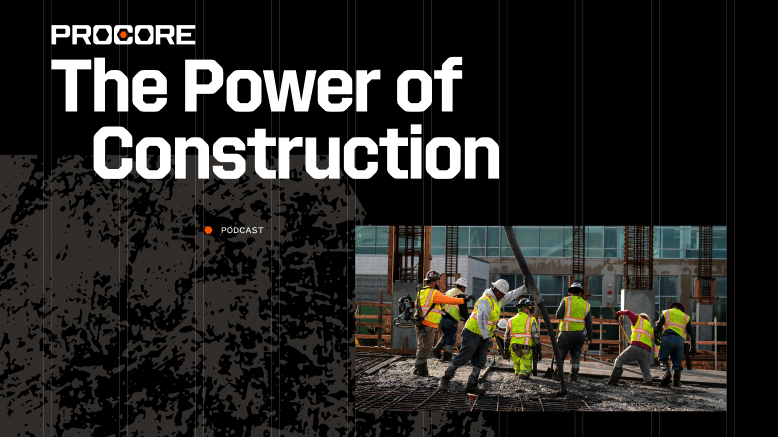— 12 min read
Navigating Bid Protests in the Construction Industry


Last Updated Jun 28, 2024

Peter Ryan
Peter J. Ryan, Esq. is a construction attorney from California. Ryan advises general contractors, subcontractors, construction managers, owners, developers and property managers in complex construction contract, project administration, and litigation matters. Ryan enables clients to manage risks by structuring and negotiating complex construction contracts, joint venture agreements, MOUs, commercial leases, non-securitized debt, and real estate transactions. With a litigation practice in both state and federal courts, Ryan has expertise in the nuances applicable to private, public, and federal construction projects in California and strategically advances his clients’ claims in all applicable forums including mediation and arbitration as well as bench and jury trials in state and federal courts. Ryan has served as local counsel for national companies with respect to construction and real estate disputes in California as well as national counsel for the coordination multijurisdictional matters. Peter Ryan was exposed to the construction industry at an early age via his grandfather’s electrical contracting business, which his father also served as president, and he interned at, learning the nuances of management, estimating, design, and field work. He is excited by the rapid rate of technologically driven advances allowing for safer, more efficient, and cost-effective projects and seeks to leverage these technologies to deliver superior solutions for clients in the context of disputes, negotiations, and risk management.

Taylor Riso
Contributing Writer
91 articles
Taylor Riso is a marketing professional with more than 10 years of experience in the construction industry. Skilled in content development and marketing strategies, she leverages her diverse experience to help professionals in the built environment. She currently resides in Portland, Oregon.
Last Updated Jun 28, 2024

For contractors, the bidding process can be fraught with challenges and potential disputes. Securing a public project often involves navigating a complex landscape where fairness and transparency are paramount. Despite the best efforts to adhere to guidelines and regulations, the outcome of the bidding process can be contentious, resulting in bid protests.
Bid protests ensure that all parties involved in the bidding process comply with established rules, maintaining the integrity of the system and fostering a competitive environment. As the industry becomes increasingly more competitive, knowing how to effectively handle bid protests can protect contractors' interests and uphold the fairness of the market.
Read on to learn the intricacies of bid protests, the critical role they play in the construction industry and how professionals can navigate this challenging aspect of the bidding process.
Table of contents
Understanding Bid Protests
A bid protest is a formal objection raised by a contractor regarding the award or solicitation process of a public construction contract. This process allows contractors to challenge decisions made by the awarding authority, ensuring that the bidding process remains fair and transparent.
Common reasons for bid protests in the construction industry include:
Non-responsiveness
This occurs when a bid fails to comply with the specific requirements outlined in the bid package. For example, if a contractor does not provide all necessary documentation or fails to meet the technical specifications, their bid may be deemed non-responsive.
Non-responsibility
A bid may be protested on the grounds that the awarded contractor does not have the necessary qualifications, experience or financial stability to perform the contract. This is known as a non-responsibility protest. A determination of non-responsibility can have long-term impacts, potentially barring a contractor from bidding on future projects and affecting their ability to secure work for a significant period.
Issues With Solicitation
Contractors may also protest if they believe that the solicitation process was flawed. This could include ambiguities or discrepancies in the bid documents, unfair evaluation criteria or failure to follow established procedures.
The Bid Protest Process
Bid protests play an important part in ensuring the fairness and transparency of the construction project bidding process. At the state level, protests typically arise when state agencies are responsible for awarding contracts for public works. These protests ensure that the bidding process adheres to state regulations and statutes.
At the federal level, the process can involve multiple layers of review, including the agency level, the Government Accountability Office (GAO) and the Court of Federal Claims. Each level has its own procedures, deadlines and implications, providing contractors with various avenues to seek redress and ensure that contract awards are conducted fairly and in accordance with federal laws and regulations.
Understanding the specific steps and nuances at each level is essential for contractors to effectively manage bid protests and protect their interests.
State Level
At the state level, the bid protest process, which can vary state to state, generally begins with the agency that issued the award. The key steps involved include:
Initiating the Protest
The process typically starts with the contractor filing a protest directly with the awarding agency. This must be done within a tight deadline, often ranging from 3–10 days from the date of the award notification.
Agency Review and Response from the Successful Bidder
The agency reviews the protest and its grounds and provides the successful bidder whose bid is being challenged with the opportunity to respond. The protest may challenge the bidder's responsiveness, responsibility or procedural issues with the solicitation process.
Agency Decision
After reviewing the protest and any response submitted by the successful bidder, the agency makes a decision. This decision can either uphold the original award, reverse the award — instead awarding the project to the next lowest responsive bidder — or, in some cases, rebid the contract.
Appealing the Decision
If the contractor is not satisfied with the agency's decision, they can appeal through the court system, typically via a writ of mandamus. This legal action requests a state court to review and potentially overturn the agency's decision.
In many states, including California, contractors must pre-qualify to bid on certain public projects. Pre-qualification, usually through a formal Request for Qualification (RFQ) or Request for Proposal (RFP) process, involves submitting detailed information about the contractor’s experience, financial stability, and previous project performance.
Federal Level
The federal bid protest process involves multiple levels, each with distinct procedures and timelines:
Agency Level
At the federal level, the protest can be initially filed with the federal agency that issued the solicitation. This process is usually less formal and quicker, aiming to resolve disputes efficiently — but is not required.
Similar to bid protests filed at the state level, contractors must file their protest within a strict deadline, typically within 10 days of the award or the decision being protested. The agency reviews the protest and makes a determination, which can then be challenged further if the contractor is not satisfied with the outcome.
Government Accountability Office
If the protest at the agency level is unsuccessful or if the contractor chooses to forgo an agency level protest, the contractor can escalate the issue to the Government Accountability Office (GAO). The GAO serves as an independent body that reviews the protest and provides a recommendation to the agency.
Although the GAO's recommendations are not binding, agencies generally comply with them to avoid further complications. The GAO aims to resolve protests within 100 days, with an expedited process available that can shorten this timeframe to 65 days. This level of review involves a thorough examination of the protest grounds and the agency’s decision.
Court of Federal Claims
The final level of initiation or appeal for bid protests is the Court of Federal Claims. As with the Agency Level Protest, there is no requirement that a contractor file a GAO protest before bringing that matter to the Court of Federal Claims but it generally makes sense to do so. The most common reasons to resort to the Court of Federal Claim are in the event that previous attempts at resolution have failed or in the event a Contractor has missed the deadlines for filing at the agency or GAO levels.
Decisions made by the Court of Federal Claims are binding, meaning the agency must adhere to the Court's ruling. A benefit of a GAO level protest is that, absent urgent circumstances raised by the agency, it results in an automatic stay of the award or performance of the contract during the protest.
There is no strict deadline for filing a protest at the Court of Federal Claims, but it must be done within a reasonable time. Unlike the GAO, there is no automatic stay of the award or performance of the contract during the protest at this level. However, the contractor can request an injunction to stay the contract, although the standard for obtaining such relief is higher. This level often involves more extensive legal proceedings and can result in significant changes to the project award.
Understanding 'Stay the Contract'
"Stay the contract" refers to temporarily halting the execution or performance of a contract while a legal review or dispute resolution process is ongoing. In the context of bid protests, staying the contract means that the awarding authority or the involved parties must pause any actions related to the contract's implementation until the protest is resolved. This can include stopping work on the project, delaying the signing of the contract or preventing the transfer of funds.
The purpose of staying the contract is to ensure that any potential issues or irregularities raised in the bid protest are addressed before the contract moves forward. This helps to avoid further complications or expenditures that might occur if the protest is found to have merit and the contract needs to be altered or re-awarded as a result. This protective measure maintains the integrity of the bidding process and ensures that all decisions are made fairly and in compliance with applicable laws and regulations.
Consequences of Bid Protests on Construction Projects
Bid protests can have significant impacts on construction projects, leading to delays, increased costs and other complications in the bidding process. Understanding these consequences is essential for contractors and project owners to navigate the complexities of bid protests effectively as well as approach the bidding process correctly.
Delays and Costs
Bid protests often result in substantial delays to project timelines. When a protest is filed, the awarding authority may be required to halt the project until the dispute is resolved. This "stay of the contract" ensures that no further action is taken on the contract until all issues raised in the protest are thoroughly reviewed. The resulting pause can extend project schedules and escalate costs due to prolonged inactivity and the potential need for additional resources once work resumes.
Financial Implications
The financial implications to the contractor advancing the bid protest can be significant. On the government side, it is a little more murky — generally, significant delays that will adversely affect the government's interest are not allowed. The system is set up to encourage both fairness and increase the likelihood that the government is getting the best price available based on the parameters set without favoritism shown to any particular contractor.
Extended timelines due to protests can lead to higher labor costs and increased expenses for equipment and materials. In some cases, the financial strain caused by a bid protest can impact a contractor's cash flow and overall financial stability, making it difficult to take on new projects or meet existing obligations. This strain can affect the contractor's ability to secure bonding for future projects, further limiting their business opportunities.
Impact on Stakeholder Relationships
Bid protests can strain relationships between contractors and federal or state governments. The adversarial nature of a protest can create tension that complicates future interactions and collaborations. For public projects, bid protests can also impact the public's perception of the project and the involved entities, potentially leading to reputational damage. Maintaining clear and open communication during the protest process can help mitigate these negative effects and preserve professional relationships.
Accurate and responsible bidding practices are important in minimizing the risk of protests and ensuring smooth execution onsite. Recognizing the importance of transparency and fairness, especially when bidding on government construction contracts, helps maintain the integrity of the industry and supports the successful delivery of projects.
Stay updated on what’s happening in construction.
Subscribe to Blueprint, Procore’s free construction newsletter, to get content from industry experts delivered straight to your inbox.

Considerations in Challenging an Award via a Bid Protest
Contractors must navigate several key challenges and considerations to effectively advance a Bid Protest.
Timing and Deadlines
One of the primary challenges is the importance of timing and deadlines. Meeting tight deadlines is paramount to avoid disqualification of the protest. Quick action is essential, especially at the agency level and the GAO, where deadlines are often very strict and follow closely after the notice of award.
Complexity of Rules
Another significant challenge is the complexity of rules governing bid protests. These rules and procedures can vary significantly between state and federal levels. State-specific rules can differ widely, and some federal agencies may have unique, shorter time periods for filing protests. Contractors must be well-versed in these varying regulations to ensure compliance and avoid procedural errors.
Material Variance
Determining what constitutes a material variance in bids is a key consideration in bid protests. A material variance refers to significant deviations in a bid that could impact the project's outcome or the fairness of the bidding process. For instance, a material variance might include missing qualifications or failure to meet specific project requirements outlined in the bid documents. Such deviations can lead to a bid being deemed non-responsive if they are considered substantial enough to affect the competitive bidding process. Assessing whether the deviation significantly impacts the price or gives an unfair advantage is imporant in determining material variance.
Value of the Bid Protest
Even when a contractor is positioned to meet applicable deadlines and has identified potential grounds to challenge an award, consideration must still be given to determining if a bid protest makes sense and would be worthwhile for the contractor in question. This decision depends on evaluating the likely costs and outcome.
Is the project likely to be rebid or is it likely that the project will be awarded to the next lowest responsive bidder? Another consideration is the likelihood of success. Is the grounds for the protest a slam dunk or could the award be upheld? A further consideration, can the cost and approach be justified? What is the nature of the protest process at play? How much time and money will it take? And what is the potential upside of a successful protest?
Best Practices for Successful Bidders to Avoid and Handle Bid Protests
Adhering to best practices can help contractors avoid bid protests and effectively manage them if they arise, ensuring smoother project execution and increased chances of securing contracts.
Submit Clear and Accurate Bids
Ensuring that all bid proposals are complete and compliant with the Invitation to Bid (ITB) is essential. Contractors should pay close attention to the requirements outlined in the bid package and ensure all qualifications are met.
Inaccuracies or omissions can lead to bids being deemed non-responsive, which can result in disqualification. By meticulously reviewing bid documents and verifying that all specified criteria are addressed, contractors can minimize the risk of bid protests and increase their chances of securing the contract.
Proactively Research Competitors
Conducting thorough research on competitors and understanding the bid evaluation criteria can provide a strategic advantage. Knowing the strengths and potential weaknesses of competing bidders can help in crafting a more competitive and compliant bid.
For example, a contractor might uncover disqualifying information about a competitor, such as a history of non-performance or lack of required certifications, which can be used to support a bid protest if the competitor is awarded the contract.
Consult Legal Experts
Being prepared to quickly engage legal counsel if needed is a vital part of the bid protest process. Having sophisticated in-house or external legal teams can help navigate the complex legal and procedural landscape of bid protests.
Legal experts can provide valuable guidance on the intricacies of protest procedures, help prepare necessary documentation and represent the contractor's interests effectively. This proactive approach ensures that contractors are ready to address any legal challenges promptly and effectively.
Enhancing Bid Readiness to Prevent Protests
In the competitive landscape of public contracting, the potential for bid protests necessitates thorough preparedness and strategic planning. Contractors must ensure their bids are clear, accurate and compliant with all requirements to mitigate the risks associated with bid protests. Proactive research and meticulous attention to bid documentation are keys to navigating the complexities of the bidding process.
Looking forward, the nature of bid protests is evolving, with increasing scrutiny and regulations shaping how contracts are awarded and contested.
As the construction industry continues to adapt, contractors must stay informed and agile, continuously refining their procurement strategies to address new challenges and opportunities in the bid protest landscape. This proactive approach will be essential in maintaining competitiveness and winning work in a highly contested market.
Was this article helpful?
Thank you for your submission.
100%
0%
You voted that this article was . Was this a mistake? If so, change your vote
Scroll less, learn more about construction.
Subscribe to The Blueprint, Procore’s construction newsletter, to get content from industry experts delivered straight to your inbox.
By clicking this button, you agree to our Privacy Notice and Terms of Service.
Thank you!
You’re signed up to receive The Blueprint newsletter from Procore. You can unsubscribe at any time.
Categories:
Written by

Peter Ryan
Peter J. Ryan, Esq. is a construction attorney from California. Ryan advises general contractors, subcontractors, construction managers, owners, developers and property managers in complex construction contract, project administration, and litigation matters. Ryan enables clients to manage risks by structuring and negotiating complex construction contracts, joint venture agreements, MOUs, commercial leases, non-securitized debt, and real estate transactions. With a litigation practice in both state and federal courts, Ryan has expertise in the nuances applicable to private, public, and federal construction projects in California and strategically advances his clients’ claims in all applicable forums including mediation and arbitration as well as bench and jury trials in state and federal courts. Ryan has served as local counsel for national companies with respect to construction and real estate disputes in California as well as national counsel for the coordination multijurisdictional matters. Peter Ryan was exposed to the construction industry at an early age via his grandfather’s electrical contracting business, which his father also served as president, and he interned at, learning the nuances of management, estimating, design, and field work. He is excited by the rapid rate of technologically driven advances allowing for safer, more efficient, and cost-effective projects and seeks to leverage these technologies to deliver superior solutions for clients in the context of disputes, negotiations, and risk management.
View profile
Taylor Riso
Contributing Writer
91 articles
Taylor Riso is a marketing professional with more than 10 years of experience in the construction industry. Skilled in content development and marketing strategies, she leverages her diverse experience to help professionals in the built environment. She currently resides in Portland, Oregon.
View profileExplore more helpful resources

What Happens When Data Drives the Business?
Construction has long been seen as a low-margin industry. But what if the real problem isn’t the margins—it’s how decisions get made? In episode 17 of The Power of Construction,...

Vet Contractors with Confidence: A Guide to Smart Bidder Selection
Selecting the right bidder is one of the most consequential decisions a construction team makes — yet it often happens under tight deadlines, with limited visibility into the long-term implications....

The Construction Bid Interview & Follow-up: Closing the Deal
During construction project bidding, the interview is often the last part of the request for proposal (RFP) process and one of the most influential. For teams that advance to the...
Construction Business Development: Tracking and Winning the Right Opportunities
Construction business development isn’t just a response to deadlines: It’s a long-term strategy rooted in focus, visibility and timing. Delays, funding gaps and market pressure have made it harder to...
Free Tools
Calculators
Use our calculators to estimate the cost of construction materials for your next project.
Templates
Find a template to help you with your construction project tasks.
Material Price Tracker
Get the latest U.S. retail prices and view historical trends for common building materials.
Glossary
Explore key terms and phrases used in the industry.
